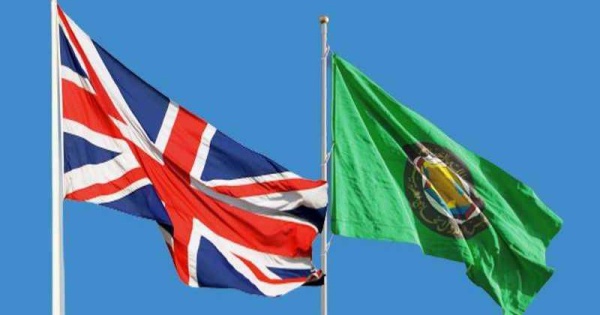Free trade and visa waiver.. UK works to attract Gulf investments

The British government spares no effort to reach a free trade agreement with the GCC countries and shows that the tour – which brought together the British Foreign Trade Secretary and representatives of the GCC countries in Riyadh last June – brings the two parties closer to concluding this agreement.
Since the United Kingdom’s departure from the European Union in 2016, it has been seeking new economic partners with special priority given to the countries of the region. This is due to several factors, including the volume of Gulf investment in Britain, the growth of demand in these markets and the high purchasing power of its citizens that makes them one of the UK’s most expendable tourists.
Saving Foreign Investments
The World Investment Report 2021 showed that the volume of foreign investment flowing into the UK in 2020 was about $20 billion, down 57% compared to 2019, which was about $45 billion. in 2016, which saw a jump of more than $200 billion, Before the curve began to decline since the results of the Brexit referendum were announced.
Qatar is considered the largest investor among the Gulf states in the United Kingdom at around Pound35 billion, in addition to an agreement between Doha and the United Kingdom on new country investments of Pound10 billion over the next five years.
Encouraging Tourism
Tourists from Gulf countries are considered more expendable in the UK. Returning to the 2019 year that is a reference for tourism activity before the global lockdown due to the coronavirus pandemic, we will find that in the first quarter of this year, more than 177 thousand Gulf tourists arrived in Britain and spent about £ 382 million.
The rate of Gulf tourists arriving in Britain is estimated at 600 thousand to 700 thousand annually, spending more than £1 billion on tourism.
This has led the United Kingdom to announce that all citizens of the Gulf States will benefit from visa-free
entry beginning next year.
According to the UK Home Office, GCC nationals will benefit from an e-travel licence known as “ETA” from 2023, an electronic form that GCC nationals will have to fill two days before they arrive in the UK and do not have to pay any fees, neither submit their passports nor obtain their fingerprints.
The e-travel licence is part of the UK’s project to make passage through its airports 100% electronically, meaning that starting next year, only any Gulf citizen will have to fill out the form at an internal website and then travel to the UK.
Pending the activation of this licence at the beginning of next year, GCC nationals can benefit from the e-visa that can also be obtained via a GCC website with a fee of up to £30.
Tariff reduction
In its negotiations with the GCC, the British government is seeking to significantly reduce the tariff imposed on British food products, especially those reaching Saudi, UAE and country markets.
According to the UK’s Foreign Trade Department, food exports to the Gulf countries reached about $767 million in 2021, and the ministry aims to significantly reduce tariffs on pastries, wheat foods, cereals, salmon and chocolate.
According to British official documents, the average tariff imposed on GCC exports is 0.4%, due to the non-application of any tariffs on oil and gas from the Gulf, which constitute the bulk of GCC countries’ exports to the United Kingdom.
In contrast, the average GCC tariff applied to UK exports is about 4.8%, which is high, and British negotiators will try to balance by seeking to exempt food products and beverages from the tariff to give them greater competitiveness in Gulf markets.
Between 2010 and 2019, trade between GCC countries and the UK increased to £41 billion by the end of 2019.
During this period, British exports to the Gulf countries rose 48% (26 billion pounds in 2019) while Gulf exports to the Kingdom rose 54% (15 billion dollars).
Exchanges between the two sides fell significantly in 2020 due to the coronavirus pandemic and the global lockdown, with Gulf exports to the United Kingdom falling 44%, and British exports falling 16.3%.





